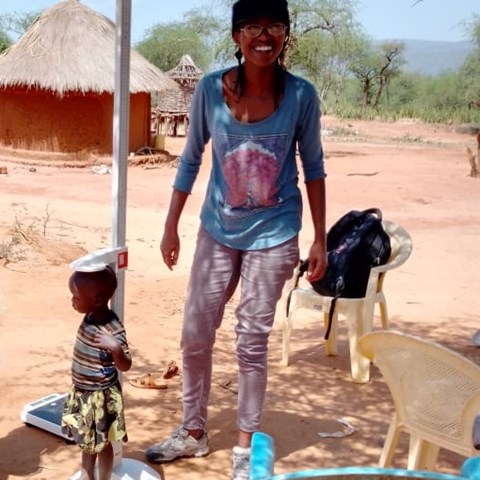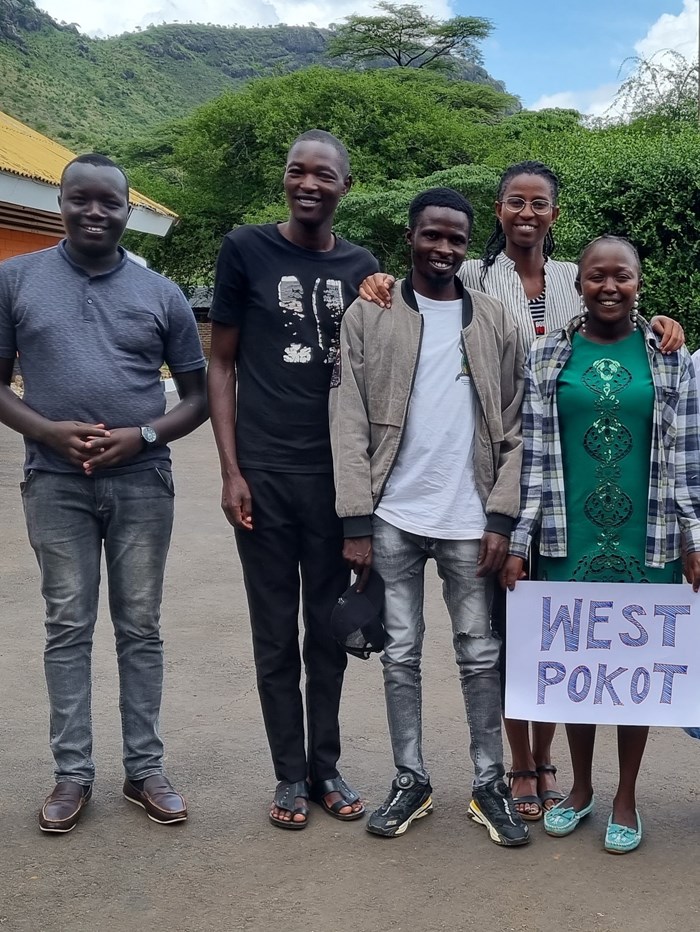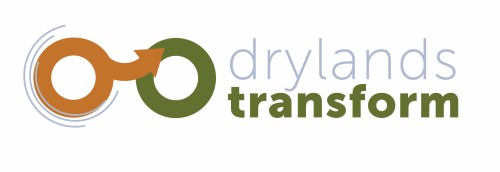East Africa is currently facing its worst famine in decades and over 50 million people are affected. The drought-affected areas are worst hit and this is where the SLU-led project Drylands Transform is active. Some of the research questions for the PhD candidate Caroline Kawira within the project will focus on the current state of food and nutritional resilience, the stressors affecting the nutritional resilience and the effects on nutritional resilience of climate variability in the Karamoja border region of Kenya and Uganda.
Caroline Kawira has a BSc in Food Science & Technology and an MSc in Nutrition and rural development (specialized in nutrition security management and public health). The masters’ research was anchored in nutrition sensitive agriculture in the drylands, specifically West Pokot (which is one of the study sites within Drylands Transform).
When coming back to the field in end of May to late June 2022 for data collection in Drylands Transform, Caroline could see that the food and nutritional security issues continue persisting with the passing years.
“I am more convinced of the validity of building resilience for nutrition in these areas (which is the topic of my current research). We just cannot continue with the status quo. It has strong negative implications on overall wellbeing and resilience of communities. I desire to employ all the skills that I have and that are within the network to make substantial effort towards building nutritional resilience in the drylands.”
Currently Caroline is finishing up her research proposal for submission to the Faculty of Agriculture of University of Nairobi and also helping with data cleaning of the data collected through the household interviews mentioned earlier.
To be able to differentiate between different climatic seasons, parts of the household survey will be repeated within a couple of months. Caroline will also conduct a series of qualitative interviews on the topic in the four project sites.
Resilience is a tough concept. Moreover, there is little research done on nutritional resilience in these areas. Figuring out how to efficiently tackle this topic is a challenge. Caroline says that she is looking forward to the qualitative interviews. This is because she thinks that they do reveal a lot that explains survey data further, but also brings insights that cannot be unearthed through surveys. Some of these insights could be the potential game changers for nutritional resilience in the drylands. She believes that a combination of qualitative research with the quantitative research gives a more holistic overview of the issue at hand.
“I am also looking forward to more critique and collaboration among the interdisciplinary Drylands Transform team. I believe as iron sharpens iron, so does one human being sharpen another. Drylands Transform’s pool of experts form a drylands think tank in my opinion. There is already a lot of beautiful exchange going on between the colleagues and I look forward to more during and beyond the lifecycle of Dry T (as we like to call it).”


